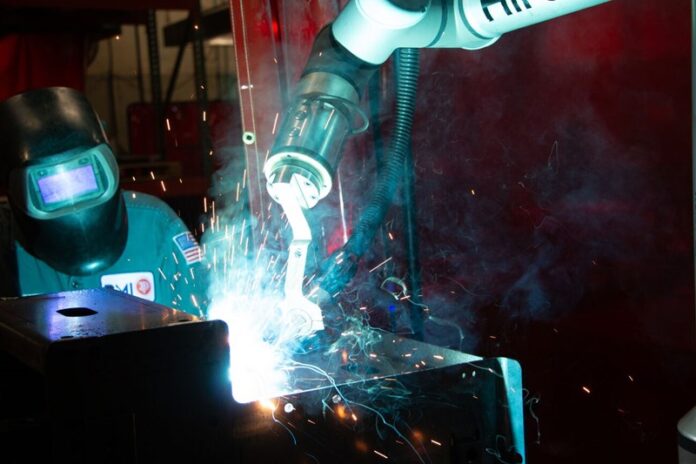In today’s hyper-connected landscape, having a smooth shopping experience is key. Whether browsing online or visiting physical stores, customers want a hassle-free experience at all times. Understanding the individual expectations that people have for virtual and in-store interactions can guide businesses in making strategic technology choices.
Bridging the Online-Offline Divide
For people who shop online, convenience and efficiency are paramount. They demand intuitive interfaces, personalized recommendations and seamless transactions. Throughout the customer’s journey, time is of the essence – from item selection to payment. Enhanced by smart search filters and mobile-friendly sites, this constantly takes on new meaning.
At the same time, in-store shoppers look for encounters which are pleasant and innovative. They need so-called ‘shoulder-to-shoulder’ staff, interactive displays, and the kind of rich sensory environment that encourages exploration and discovery. How does one bridge that gap between expectations and reality, and unify the efficiency of online shopping with the immersive experience of in-store visits, shaping a brand experience which remains consistent across all touchpoints?
AI Tech Trends Revolutionizing Retail

Artificial Intelligence (AI) is a game-changer for modern retail. Here are four key trends reshaping the customer journey:
- Conversational AI: NLP-powered chatbots and voice assistants available online round the clock offer customized product choices and personalized answers to questions. This means that they are available 24/7 and provide answers to both questions about their products as well as making personalized recommendations. Suppose a consumer is looking for the perfect winter coat. An AI-assisted virtual stylist can study their purchasing history and preferences to provide some appropriate styles at either end of the price range recommended for them in terms of taste and individual needs.
- Personalization Engines: Deep learning models are used to mine customer data and tailor ultra-personal experiences. Everything from targeted promotions to a flexible website layout is done by AI. Given that A loyal customer visiting the website is personally greeted with their favorite brands and preferences.
- Smart Analytics and Feedback: AI analyzes customer behavior through website clicks, in-store foot traffic patterns, and social media mentions. This data goldmine reveals valuable insights into preferences, pain points, and purchase triggers. Imagine pinpointing areas with high product abandonment rates online or identifying understocked shelves in-store, all thanks to AI-powered analytics.
- Augmented Reality (AR) and Virtual Reality (VR): There is less distinction between the actual and virtual worlds thanks to these immersive technologies. Customers may use augmented reality apps to digitally try on clothing or see how furniture will look in their homes before buying it. To create an emotional connection with the brand and encourage customer loyalty, virtual reality (VR) experiences take users to the product’s beginnings or provide rare behind-the-scenes looks.
AI-Powered Customer Service
Nowadays, that age of automated impersonal customer service is over. NLP chatbots are equipped with natural-language processing; they can handle simple questions on their own to enable human operators to focus time and effort on more difficult or demanding problems.
Natural Language Processing (NLP) chatbots can resolve simple problems for you, so that human operators handle more complex issues. However, an era has dawned in which they are backed by real-time sentiment analysis algorithms. This allows any change in user mood or dropping satisfaction to be detected, and interventions—whether proactive or reactive made on behalf of customers.
AI-Enhanced Feedback Collection Terminals
The AI-driven feedback terminals can not only gather valuable customer sentiment in real-time but also deliver essential demographic insights. By harnessing this data, merchants can swiftly resolve issues and adjust their store layout and product offerings to match the preferences of their key customer segments.
5 Reasons to Embrace AI in Retail

- Boosted Customer Satisfaction: AI makes consumers happier and more loyal by tailoring their experiences, streamlining their interactions, and proactively addressing their problems.
- Enhanced Operational Efficiency: AI automates tasks, analyzes data for better decision-making, and optimizes inventory management, resulting in cost savings and improved resource allocation.
- Data-Driven Insights: Retailers may now personalize their goods and marketing campaigns to make the most of their customers’ preferences, pain areas, and buying habits thanks to AI-unlocked valuable consumer data.
- Competitive Advantage: By embracing AI, retailers differentiate themselves from the competition, offering cutting-edge experiences that attract new customers and retain existing ones.
- Future-Proofing the Business: Investing in AI signifies a commitment to innovation and preparedness for the ever-evolving retail landscape, ensuring long-term success and relevance.
The Price of Unhappy Customers
In today’s digital age, the risk of lost revenue and damaged reputation is higher than ever. The easier it is to comment, the more negative feedback – unjust or not – can rapidly spread online. This is why it’s imperative for retailers to advance customer satisfaction, leveraging the latest retail yechnologies as tools to look ahead instead of just putting out fires. Only this way can they forestall troubles in their infancy and protect the integrity of their brands.
Why You Can’t Afford to Sit Back
Having products is insufficient in today’s competitive economy. People are on the lookout for tales and experiences that leave an impression. In this regard, artificial intelligence really excels, providing a variety of tools for tailoring interactions and, more importantly, creating inimitable emotional bonds between your company and its consumers. You can take control of the story and design a customer journey with AI that goes above and beyond to win over new fans and keep them as loyal customers.
Using AI as Your CX Crystal Ball

The transformative power of AI in retail lies in its ability to replace intuition and speculation with precise, data-driven decision-making. By harnessing real-time insights into customer sentiment and behavior, AI enables a proactive approach to customer engagement, setting a new standard for competitive advantage in the retail sector.
Furthermore, AI’s ability to analyze information can offer valuable insights into the success of marketing campaigns, store designs, and customer-loyalty programs. For instance, with AI-guided A/B testing on websites or targeting of special promotions in light of the results obtained, optimization would be based on data, so that every touchpoint was of benefit to the customer and conversion rates were heightened. AI –driven insights thereby guarantee that your CX mechanisms remain dynamic and flexible rather than being relegated to the strategy on paper: a model of constant improvement.
Conclusion
The future of retail lies in leveraging AI not to replace human talent but to augment it, enabling employees to excel in their work. AI serves as a tireless assistant that enhances efficiency, allowing the workforce to focus on what truly matters: building genuine connections with customers. By providing personalized recommendations and streamlining administrative tasks, AI empowers employees to deliver excellent service. This, in turn, fosters customers’ trust and brand loyalty.
At the end of the day, all AI in retail will do is put the customer at the center of your strategy. It means meeting their wants and exceeding their expectations, providing experiences that continue to resonate after they’ve left your store – whether virtual or physical. As you embrace AI and its ability to transform, you open the door to a future where customer satisfaction is not just a goal but the very foundation of success in retail.







